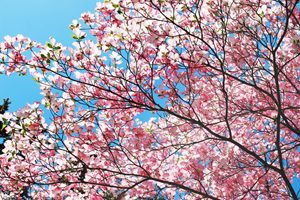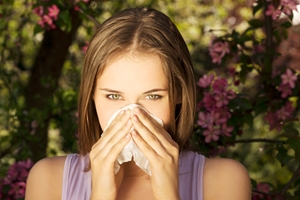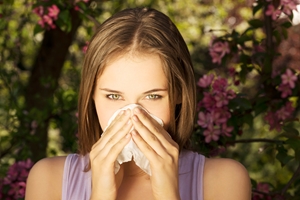
Experts predicted early on that spring allergy season would be particularly harsh this year, and their fears seem to be coming true. The Southeast and Northeast U.S. have been especially affected, with some even referring to conditions as a "pollen tsunami."
This allergy season's severity has a lot to do with the long winter and its record-breaking snowfalls. Excessive precipitation ensures that tree roots are well-fed, which enables them to produce a lot of pollen in the spring.
The late coming of spring has also accelerated the spring growing season, and therefore the production of pollen. "When the weather gets warm immediately like this and plants have bloomed in a short time to reproduce, most likely the pollination will initially be quite intense," says Dr. Jakub LeKach of Dunmore, Pennsylvania.
Pollens which generally appear at different times are coming all at once. Oak and birch pollen, two of the worst kinds, are overlapping with pollen from trees like the alder, ash and poplar, and grass pollen will soon peak as well. Dr. Clifford Bassett of New York refers to this effect as a "triple whammy" for allergy sufferers.
Climate change is also a factor. A warmer summer leads to higher pollen production the next spring. The AARP reports that allergy season begins about two weeks sooner than it did 20 years ago, with high pollen counts showing up as soon as early March.
Pharmacies are experiencing higher demand for allergy control products than usual, and the allergy season is unlikely to improve any time soon. LeKach predicts that symptoms could continue until July.
Are your allergies worse than usual this spring? Visit Allergy Be Gone's store today for a wide range of allergy solutions.









